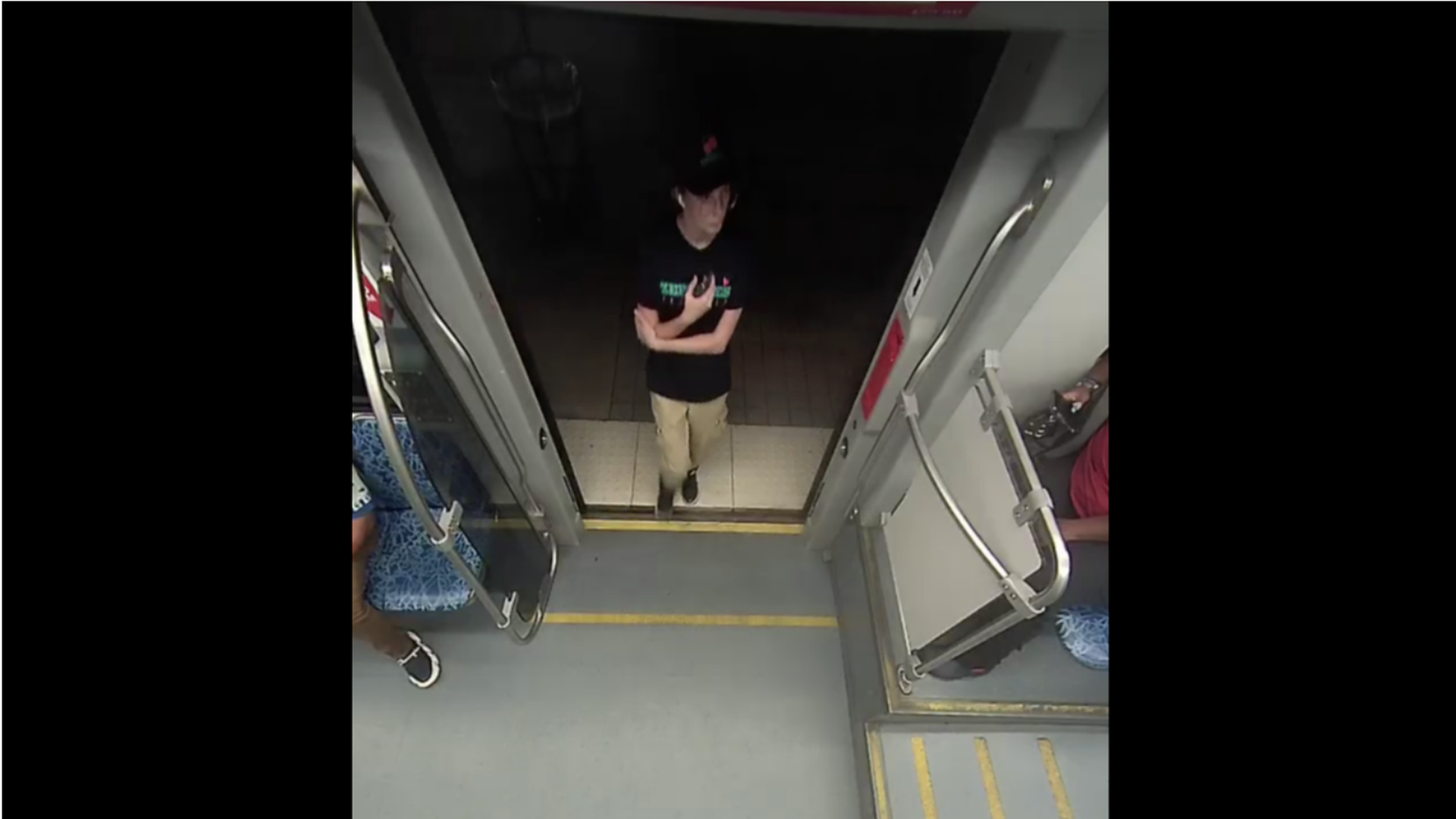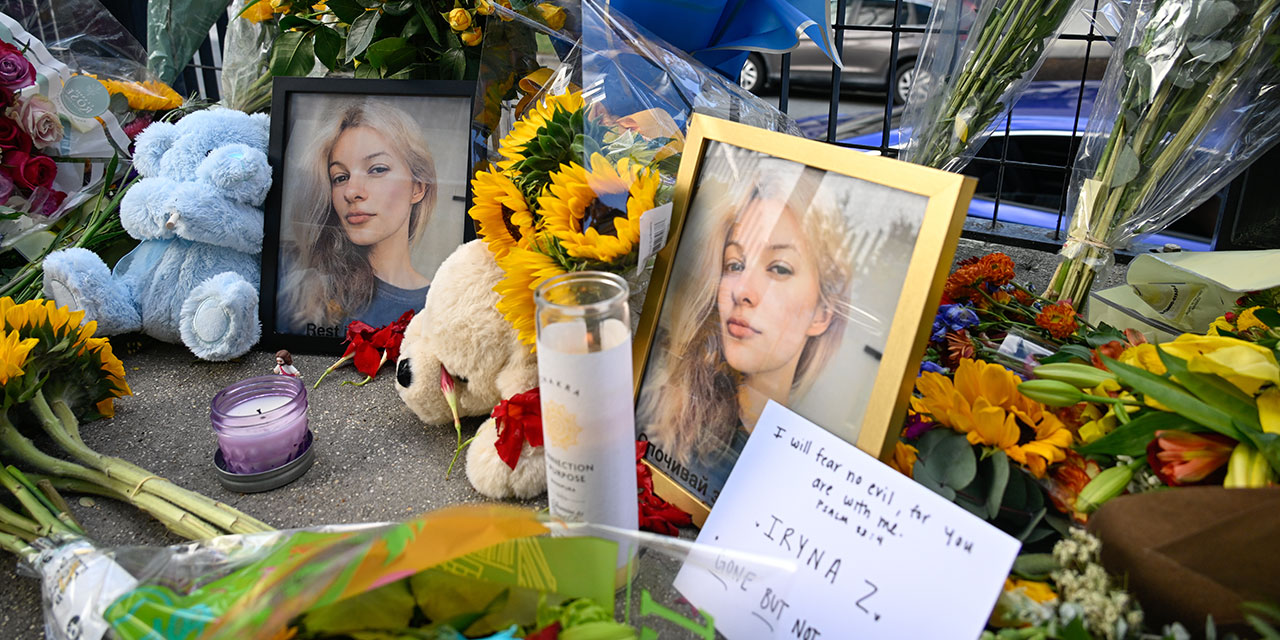Final Moments of Iryna Zarutska Aboard Charlotte’s Lynx Blue Line

The grainy footage from camera #12 aboard Charlotte’s Lynx Blue Line train has become a grim artifact of modern tragedy, capturing the final 47 seconds of Iryna Zarutska’s life at 8:41 p.m. on August 22, 2025. But a new, heartbreaking detail has emerged from that fateful evening, painting an even more vivid picture of the 23-year-old Ukrainian refugee’s final moments. A passenger seated just three rows away, whose identity remains protected, recalls Zarutska nervously tracing the edge of her train ticket, her fingers moving in repetitive, almost meditative circles—an unconscious gesture of anxiety or perhaps a quiet bid for calm. Investigators would later recover that same ticket, torn in half, with one piece still missing, a poignant symbol of a life violently cut short just ten minutes from home.
Iryna Zarutska’s story is one of resilience forged in the crucible of war and displacement. Born in Kyiv in 2002, she fled Ukraine with her mother, sister, and brother in 2022 as Russia’s invasion upended their lives. Her father, trapped by martial law, remained in a bomb shelter, a separation that weighed heavily on the family. In Charlotte, North Carolina, Zarutska rebuilt with tenacity: mastering English, studying at Rowan-Cabarrus Community College, and working at Zepeddie’s Pizzeria while nurturing dreams of becoming a veterinary assistant. Known for her radiant smile and eclectic art—sculptures gifted to friends, quirky clothing designs—her vibrancy left an imprint on everyone she met. That August night, she boarded the train at Scaleybark station, still in her work uniform, her phone glowing with a final text to her boyfriend: “I’ll be home soon.”
The passenger’s account, first shared in a police statement and later reported by WCNC Charlotte, adds a layer of intimacy to the sterile horror of the surveillance footage. Seated three rows away, the witness—described only as a regular commuter—noticed Zarutska’s quiet unease. “She kept running her fingers along the ticket, back and forth, like she was trying to steady herself,” they told investigators. “She didn’t look up much, just stayed focused on it.” That ticket, a $2.20 single-ride fare, was found crumpled near her body, torn jaggedly in two. One half lay beneath her seat, stained with blood; the other remains unaccounted for, a detail that has sparked speculation and sorrow across social media platforms like X.
The attack itself was as swift as it was brutal. Decarlos Brown Jr., a 34-year-old homeless man with a history of mental illness and violent arrests, sat behind Zarutska, his behavior erratic. Court documents reveal he believed she was “reading his mind,” a delusion that fueled his rage. At 8:41 p.m., as Zarutska stood by the door, clutching her phone to her chest, Brown unfolded a pocketknife. In 47 seconds, he stabbed her three times—twice in the back, once in the neck—before the camera feed cut to black and her phone signal vanished. The torn ticket, found later, suggests a struggle or a desperate act, perhaps Zarutska’s own hands rending it as she fought for her life. “That missing half feels like a piece of her we’ll never get back,” one X user, @CarolinaCares, posted in a thread that drew thousands of reactions.
The passenger’s recollection has struck a chord, humanizing a tragedy already seared into public consciousness. On X, posts like @moment_mirthful’s—“She was tracing her ticket, probably thinking of home, and then… gone. Ten minutes from safety”—have gone viral, amassing over 12,000 likes. The image of Zarutska’s fingers on that ticket has become a focal point for grief, a small act imbued with profound weight. Reddit’s r/TrueCrime community, in a thread with 2,100 upvotes, speculates whether the missing half was taken by Brown, lost in the chaos, or even pocketed by a bystander—a macabre keepsake in a moment of panic.

The broader context of the incident paints a grim picture of systemic failures. Charlotte’s light rail, part of the CATS network, has faced a 20% spike in violent incidents in 2025, mirroring national trends in urban transit crime. Budget cuts have slashed security patrols by 40%, leaving gaps that advocates say allowed Brown, a repeat offender released on low bail, to board unchecked. The 911 tapes, released days ago by TMZ, capture the aftermath: passengers screaming, “She’s bleeding out!” as the train halted at East/West Boulevard station, with no immediate aid for Zarutska. Brown fled, bloodied from a passenger’s defensive strike, but was arrested nearby, the knife still in his possession.
Zarutska’s death has ignited a firestorm. President Trump, at a recent Charlotte rally, called it a symptom of “lawless cities” under liberal policies, while Governor Josh Stein labeled it a “moral failure.” Mayor Vi Lyles, urging restraint in sharing the graphic footage, said, “Iryna’s memory deserves dignity, not viral clicks.” In Ukraine, where Zarutska’s father watched her funeral via video link, President Zelenskyy tweeted, “Her light was stolen, but her spirit endures.” A GoFundMe for her family has raised $175,000, with donors sharing stories of her kindness: feeding strays, teaching art, dreaming of a vet clinic.
Brown, now charged with first-degree murder, awaits a competency hearing, his untreated schizophrenia a focal point for reform advocates. But for Zarutska’s loved ones, the torn ticket symbolizes more than evidence—it’s a fragment of her final act, a tactile connection to a woman who fled war only to find violence in a place she hoped was safe. Vigils across Charlotte, including one in Huntersville that drew 300 mourners last week, keep her memory alive. On X, @iamyesyouareno wrote, “That ticket was her last tether to normalcy. We won’t forget you, Iryna,” a post liked 9,000 times.
As the investigation continues, the missing half of that ticket haunts the narrative—a mystery within a tragedy. Was it lost in the melee, clutched by Brown, or simply swept away in the chaos? For now, it remains a ghostly relic, much like Zarutska’s unfulfilled dreams. Her Instagram, frozen on a smiling selfie from June, stands as a digital memorial to a life of promise. In the quiet gesture of tracing her ticket, Iryna Zarutska unknowingly left a final mark—a reminder that even in a nation of second chances, safety must be more than a fleeting hope.



